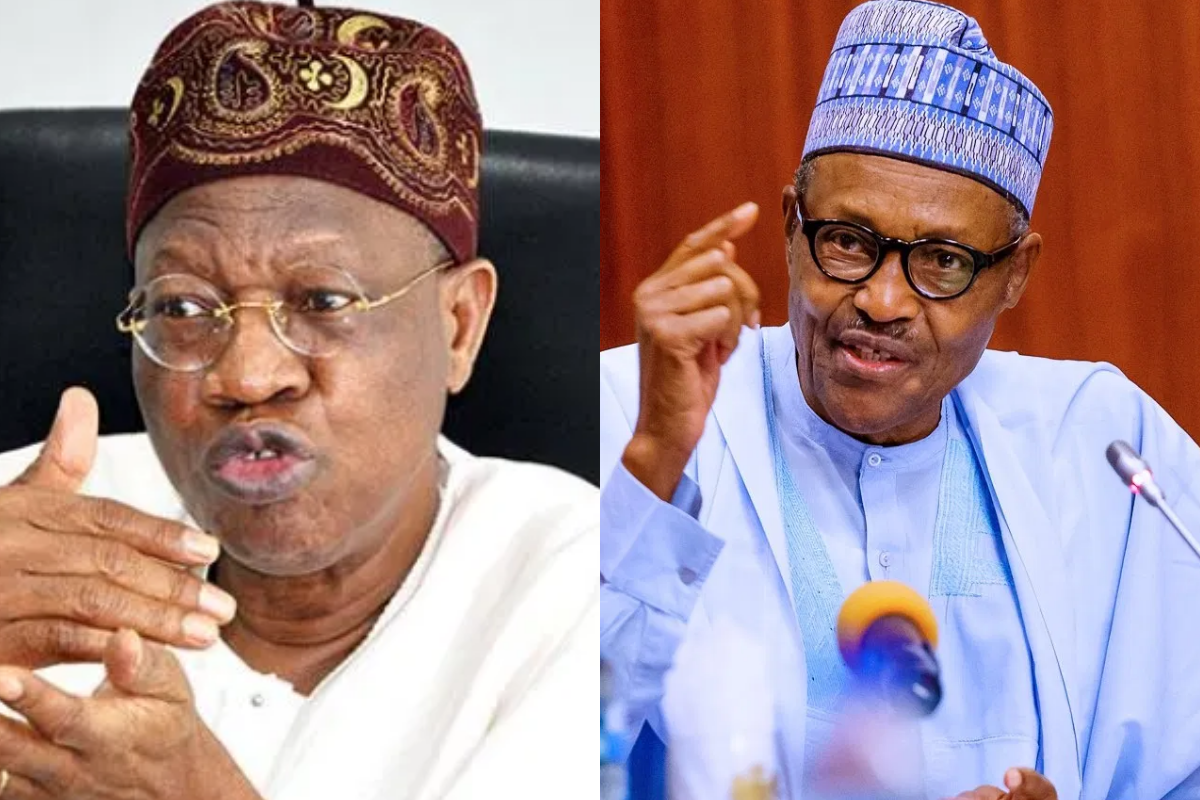The Minister of Information and Culture, Alhaji Lai Mohammed says he is “yet to see a leader as patient, tolerant and understanding as President Muhammadu Buhari”, especially in the running of affairs of the country.
The Minister stated this on Friday in Abuja when he received a delegation from African Union Development Agency – NEPAP and Africa Peer Review Mechanism (APRM).
The News Agency of Nigeria reports the team is carrying out the second peer review of Nigeria as well as the country’s self-assessment report and validation.
The minister noted that with the kind of challenges the country had faced in the past six years, it could only take the tolerance, wisdom and peculiar governance style of the President for the nation to move forward.
Read Also: Why cannabis cannot be legalised – Marwa
“The kind of challenges we faced in the last six year would challenge the most resourceful person.
“This is a country of about 200 million people, over 500 ethnic groups and tongues and people with different aspirations, religions and beliefs.
“Running a country like Nigeria is like running a mini-continent and this is why I want to salute the tolerance, wisdom and peculiar governance style of Mr President,” he said.
The minister added: “I say this because in the last six years I have been attending the Federal Executive Council (FEC) meeting.
“The president will, on any issue, listen to the submissions of all the 43 ministers if they want to make contribution to any issue without betraying where he stands on the matter.
“Even when we know that some of our colleagues are not making so much sense on a topic, the president will listen attentively and will say thank you at the end of the contributions.
“I believe that it is his background and experience that moulded him that way and till date you cannot see any minister that will say his view was never heard.
“No matter how pedestal it might be, the President will listen”.
The minister explained that when the government took over in 2015, it faced the challenge of insurgency as the Boko Haram terrorists had taken over most part of the North-East region.
He said the administration also met an economy that had virtually collapsed while the oil price was down from 120 dollar per barrel to about 30 dollar per barrel.
The minister said critical infrastructure of the nation had also collapsed with little or no budget to fund them when the Buhari government took over in 2015.
Six years down the lane, Mohammed said Boko Haram had been decimated and their members were surrendering in droves while the government is winning the war against banditry and other forms of insecurity.
He said the administration had succeed in diversifying the economy, with the non oil sector – agriculture and the creative industry – doing very well and contributing more to GDP than the oil sector.
The minister said the country was able to exit recession even with the effect of COVID-19 pandemic because of deliberate economic policies introduced by the administration.
In addressing the challenge of poverty, Mohammed said the government introduced social welfare programmes like Trademoni, Marketmoni, school feeding programme.
The minister said the Buhari administration is building infrastructure across the six Geo-political zones, adding that no government in the county’s history has surpassed its record in infrastructural development.
Earlier, the Coordinator of AUDA/NEPAD/APRM in Nigeria, Princess Gloria Akobundu said Nigeria was undergoing its second peer review following the President’s approval of the process.
“Nigeria was first peer reviewed in 2008 and since then to date, here we are for the second peer review.
“What we are doing is to assess Nigeria from 2008 to date to see what is being done differently, how have we implemented the previous report called the national programme of action.
“Barely 11 years down the lane, we can say we have consolidated democracy, we have done well in some aspects like infrastructural development, agriculture and diversification of economy,” she said.
The lead panelist for the country’s review, Dr Abdoulie Janneh said they had toured the country and had impressive meetings and diverse participations.
“For us, it was excellent and we commend the President for his passion.
“Nigeria is a big and diverse country and we are excited over the lead role Nigeria is playing, especially in the ECOWAS region.
“It is therefore important that Nigeria takes the lead role in the continent, because the other countries have a lot to learn from you,” he said.
Janneh assured that that the detailed report of the review would be submitted to the AU Heads of State during their summit in Addis Ababa in February 2022. (NAN)




 Premier League
Premier League